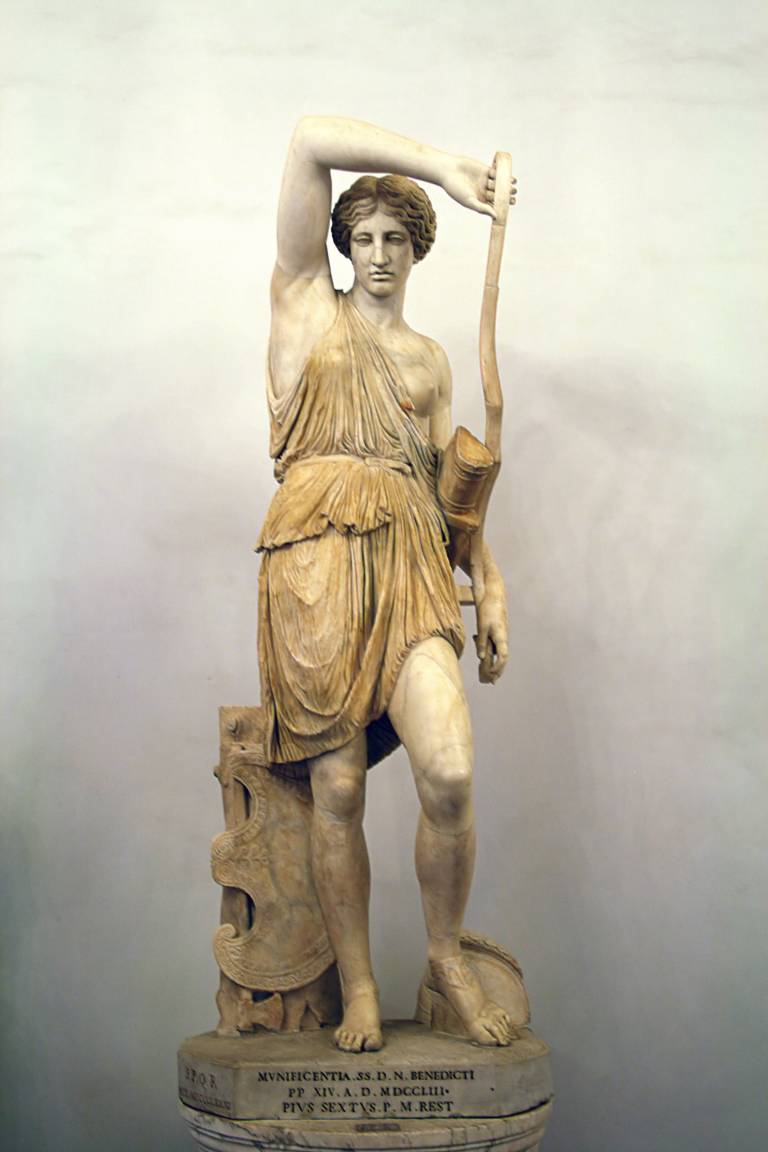VIRTUAL EVENT: IAS Talking Points Seminar - On Courage In Plato’s Republic
13 October 2020, 6:00 pm–7:30 pm

The IAS is delighted to welcome Visiting Research Fellow Dr Merrick Anderson for a talk entitled 'On courage in Plato's Republic and what lessons it might have for us today'. Respondents: Dr Elena Cagnoli Fiecconi (Greek & Latin, UCL) and Professor Raphael Woolf (Philosophy, KCL). Chaired by Dr Michael Picard (IAS, UCL)
This event is free.
Event Information
Open to
- All
Availability
- Yes
Cost
- Free
Organiser
-
Institute of Advanced Studies
In his great work, the Republic, Plato offers definitions and discussions of the four most important virtues for the Classical Greeks: wisdom, courage, temperance and justice. Though his understanding of these virtues is in certain respects removed from and alien to contemporary thinking about the virtues, it nevertheless has an enduring interest.
In this talk I will focus on courage. I will argue that what courage is, according to Plato in the Republic, is a ‘power’ that preserves one’s correct deliberations about what ought to be done, thereby allowing one to act on them even in difficult external circumstances. In other words, courage provides a sort of psychological fortitude that prevents us from abandoning our well-reasoned plans in the face of the fears, pleasures and pains that threaten to upset our reasoning.
Two features of this peculiar sounding view are worthy of our consideration today. The first is that courage presupposes a relatively robust intellectual achievement. For Plato the ability to withstand fears, pleasures and pains is not enough for courage: one must also have knowledge or correct opinion about what should be done. Acquiring this typically requires education and training, which is a fact particularly important for us in the academy, as it will be incumbent upon us to help students develop the intellectual prerequisites of this moral virtue. The second point that is worthy of note is how Plato refuses to prejudge what courageous behaviour will look like in the real world. Truly courageous behaviour will be the sort of behaviour that a rational agent decides to be all-things-considered best, and there is no telling exactly what this will look like in advance. Especially in times where courage is often associated with aggressive or martial behaviour, Plato’s openness to alternative possibilities of what courage in practice will look like provides a useful corrective to current ideas.
All welcome. Event link will be announced in this website - do not hesitate to contact us if you need assistance on the day. Please follow this FAQ link for more information and to read our virtual events code of conduct. All our events are free but you can support the IAS here.
 Close
Close

